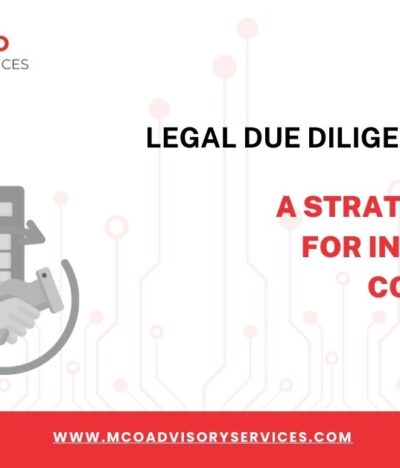India’s renewable energy sector has seen exponential growth over the past decade. The country’s commitment to the Paris Agreement and its ambitious targets, such as achieving 175 GW of renewable energy capacity by 2022 and 450 GW by 2030, have driven substantial investments and advancements in this sector. renewable energy escrow legal clauses play a crucial role in facilitating these projects by ensuring financial security and compliance with regulatory standards.
Legal and regulatory frameworks are paramount for the success of renewable energy projects. These frameworks provide the necessary structure to manage risks, ensure compliance, and facilitate smooth operations. Regulatory compliance for energy projects ensures that projects adhere to environmental standards, financial regulations, and safety protocols. Non-compliance can lead to legal disputes, financial penalties, and project delays.
Introduction to Escrow Agreements for Renewable Energy Projects and Their Significance
Escrow agreements for renewable energy projects are essential legal instruments that provide financial security and manage transactional risks. These agreements involve a neutral third party, known as the escrow agent, who holds and disburses funds according to the terms specified in the escrow agreement. This arrangement ensures that all parties fulfil their contractual obligations before funds are released.
Escrow arrangements are particularly significant in renewable energy projects due to the substantial financial investments involved. They ensure that project developers, investors, and other stakeholders are protected against default risks. Additionally, escrow accounts help in managing revenue streams from power purchase agreements (PPAs) and other contractual obligations, ensuring energy project regulatory compliance.
Escrow arrangements also facilitate the smooth execution of renewable energy projects by ensuring timely payments to contractors and suppliers, thus preventing project delays and financial disputes. By adhering to escrow account legal requirements, these agreements contribute to the overall stability and success of renewable energy initiatives in India.
Understanding Escrow Agreements for Renewable Energy Projects in Legal Context
Definition and Purpose of Escrow Accounts in Renewable Energy Projects
Escrow agreements for renewable energy projects are legal instruments designed to manage and secure financial transactions among parties involved in the development and operation of renewable energy projects. An escrow account is a financial arrangement where a third party holds and regulates the payment of funds required for two parties involved in a given transaction. This ensures security and trust, especially in high-stake projects like renewable energy installations.
The purpose of escrow accounts is to mitigate risks associated with the financial transactions of renewable energy projects. By holding funds in a secure, neutral account, escrow agreements ensure that the parties meet all contractual obligations before the funds are released. This mechanism is crucial for projects involving significant capital investments and long-term financial commitments.
Key Stakeholders Involved and Their Legal Obligations
The key stakeholders in escrow agreements typically include the project developers, investors or financiers, and an escrow agent. Each of these stakeholders has specific legal obligations to ensure the successful execution of the project.
- Project Developers: They are responsible for the construction and operation of the renewable energy project. Their legal obligations include meeting the project milestones, adhering to regulatory standards, and ensuring the quality of the construction. They must comply with the terms set out in the escrow agreement to receive the funds from the escrow account.
- Investors/Financiers: These stakeholders provide the necessary capital for the project. Their legal obligations include timely disbursement of funds into the escrow account as per the agreement. They must also ensure that the project developers meet their obligations before releasing the funds.
- Escrow Agent: The escrow agent is a neutral third party responsible for managing the escrow account. Their legal obligations include safeguarding the funds, ensuring that all conditions stipulated in the escrow agreement are met before disbursing the funds and maintaining transparency in financial transactions. The escrow agent must comply with both renewable energy escrow legal clauses and general financial regulations.
Essential Legal Clauses in Escrow Agreements for Renewable Energy Projects
Account Setup and Maintenance
Legal requirements for setting up escrow accounts under Indian law:
To establish an escrow account for renewable energy projects in India, the following legal requirements must be adhered to:
- Appointment of Escrow Agent: The parties involved must appoint a neutral escrow agent, typically a bank or a financial institution, which is approved by the Reserve Bank of India (RBI).
- Drafting the Escrow Agreement: The escrow agreement must clearly outline the terms and conditions under which the funds will be held, managed, and disbursed. This includes specifying the responsibilities of the escrow agent, the events that trigger the release of funds, and the conditions under which the funds can be returned or retained.
- Regulatory Compliance: The setup and operation of escrow accounts must comply with RBI guidelines and other financial regulations. For example, the Prevention of Money Laundering Act (PMLA) requires that all transactions through escrow accounts be transparent and traceable to prevent illegal activities.
- Authorization and Documentation: Proper documentation is crucial for the legal setup of an escrow account. This includes identification and verification documents of all parties involved, the detailed project plan, and any other regulatory approvals required for the renewable energy project.
Roles and responsibilities of the escrow agent as per legal standards:
The escrow agent has several critical legal responsibilities, including:
- Fiduciary Duty: The agent must act in the best interests of both parties, maintaining impartiality and ensuring that the funds are managed and disbursed according to the escrow agreement.
- Compliance and Reporting: The agent must ensure that the escrow account complies with all relevant regulations, including reporting requirements to regulatory bodies like CERC and MNRE.
- Secure Management of Funds: The agent is responsible for safeguarding the funds in the escrow account, ensuring they are only released when all conditions specified in the agreement are met. This involves verifying that all contractual obligations have been fulfilled before disbursing the funds.
Conditions and regulations for account modifications and closures:
Escrow agreements should specify the conditions under which the account can be modified or closed:
- Modification of Terms: Any modifications to the escrow agreement must be agreed upon by all parties and documented in writing. This includes changes to the conditions for fund release, the responsibilities of the escrow agent, or any other critical terms.
- Account Closure: The escrow account can be closed only after all contractual obligations are met, and the project is successfully completed. The closure must be documented, and any remaining funds must be disbursed according to the terms of the agreement.
- Dispute Resolution: The agreement should outline procedures for resolving disputes regarding account modifications or closures. This might involve arbitration or legal proceedings under the jurisdiction of Indian courts.
Payment and Revenue Management
Legal procedures for depositing project revenues into escrow accounts
In renewable energy projects, managing the flow of funds through escrow agreements is critical to ensuring financial integrity and compliance. The legal procedures for depositing project revenues into escrow accounts include:
- Contractual Obligations: The escrow agreement must detail the specific obligations of all parties involved regarding the deposit of funds. This includes the timelines for deposits, the types of payments to be deposited (e.g., revenues from power purchase agreements), and the conditions under which these deposits should be made.
- Compliance with Financial Regulations: Deposits into escrow accounts must adhere to the RBI’s guidelines and other financial regulations to ensure the legitimacy and traceability of all transactions. The Prevention of Money Laundering Act (PMLA) mandates that all transactions through the escrow account be transparent and properly documented.
- Verification and Documentation: Before deposits are made, the escrow agent is responsible for verifying the source and amount of the funds to ensure compliance with the terms of the agreement. All deposits must be accompanied by appropriate documentation, such as invoices, payment receipts, and confirmation from relevant parties that contractual milestones have been achieved.
Regulatory guidelines for the disbursement of funds to stakeholders
The disbursement of funds from escrow accounts in renewable energy projects is governed by several regulatory guidelines:
- Disbursement Conditions: The escrow agreement must clearly outline the conditions under which funds will be disbursed. These conditions typically include the completion of specific project milestones, approval from regulatory bodies, and compliance with contractual obligations.
- Approval Process: Funds can only be disbursed after receiving necessary approvals from the project developers and financiers. The escrow agent must ensure that all required approvals are documented and that the disbursement is in accordance with the energy project regulatory compliance requirements.
- Record Keeping and Reporting: The escrow agent is responsible for maintaining detailed records of all disbursements. This includes keeping copies of disbursement requests, approval documents, and receipts of funds released. Regular reporting to regulatory bodies such as CERC and MNRE is also required to ensure transparency and accountability.
Default and Dispute Resolution
Legal provisions for addressing default scenarios
In escrow agreements for renewable energy projects, addressing defaults is crucial to protect the interests of all parties involved. The legal provisions for addressing default scenarios typically include:
- Definition of Default: The escrow agreement must clearly define what constitutes a default. This can include failure to meet project milestones, non-payment or delayed payments, and any breach of contractual obligations by either the project developer or the financier. These definitions must align with renewable energy escrow legal clauses and relevant Indian laws such as the Indian Contract Act, 1872.
- Notification Process: Upon the occurrence of a default, the non-defaulting party must notify the defaulting party and the escrow agent in writing. The notification should detail the nature of the default and provide a specified period for the defaulting party to cure the breach. This process ensures regulatory compliance for energy projects by maintaining transparency and accountability.
- Escalation and Remediation: If the default is not cured within the specified period, the escrow agreement should outline the steps for escalation and remediation. This may include invoking guarantees, drawing on performance bonds, or utilizing other security measures outlined in the agreement. These steps are governed by Indian contract law and other relevant regulations.
Mechanisms for dispute resolution and enforcement of rights
Effective dispute resolution mechanisms are essential in escrow agreements to ensure that conflicts are resolved efficiently and do not hinder the progress of renewable energy projects:
- Arbitration Clauses: Many escrow agreements include arbitration clauses as the preferred method for resolving disputes. Arbitration provides a private, binding resolution process that is typically faster and less adversarial than traditional litigation. The Arbitration and Conciliation Act, 1996 governs arbitration in India, ensuring that the process is fair and legally binding.
- Mediation and Conciliation: In some cases, parties may prefer mediation or conciliation to resolve disputes amicably. These methods involve a neutral third party who facilitates negotiations between the disputing parties to help them reach a mutually acceptable solution. The Mediation and Conciliation Rules, 2004 provide the legal framework for these processes in India.
- Judicial Recourse: If arbitration or mediation is not successful, parties may seek judicial recourse through the Indian courts. The agreement should specify the jurisdiction and venue for any legal proceedings, typically aligning with the location of the project or the principal place of business of the involved parties. Courts may enforce the terms of the escrow agreement, including the payment of damages or specific performance.
Remedies available under Indian contract law and specific energy regulations
The remedies for breach of escrow agreements are governed by Indian contract law and specific energy regulations:
- Damages: If a party breaches the escrow agreement, the non-breaching party may be entitled to damages. This includes compensation for any financial losses incurred due to the breach.
- Specific Performance: In some cases, the court may order specific performance, requiring the defaulting party to fulfill their contractual obligations as outlined in the escrow agreement.
- Injunctions: The non-breaching party may seek an injunction to prevent the defaulting party from taking certain actions that could further harm the project.
- Liquidated Damages: Many escrow agreements include clauses for liquidated damages, which are predetermined amounts payable by the defaulting party in case of specific breaches, such as delays in project completion.
Performance Guarantees and Security
Requirements for performance bonds or guarantees as per Indian law:
In the context of escrow agreements for renewable energy projects, performance guarantees and bonds are crucial to ensure the successful completion of the project. These guarantees provide a form of security to the stakeholders, ensuring that the project developers meet their contractual obligations.
- Performance Bonds: Performance bonds are financial instruments provided by a third party, typically a bank or insurance company, guaranteeing the performance of the project developer. The bonds must be unconditional and payable on demand to ensure they provide adequate security.
- Bank Guarantees: Bank guarantees are another form of security commonly used in renewable energy projects. These guarantees ensure that the bank will fulfill the payment obligations of the project developer if they fail to perform. The Reserve Bank of India (RBI) regulates the issuance and enforcement of bank guarantees.
- Contractual Obligations: The escrow agreement must detail the specific performance obligations of the project developer, including timelines, quality standards, and regulatory compliance.
Legal implications of security interests and lien rights over escrow account
The creation and enforcement of security interests and lien rights over escrow accounts are governed by several legal principles and regulations:
- Security Interests: Security interests are legal claims on the escrow funds to secure the fulfillment of obligations under the escrow agreement. According to the Securitisation and Reconstruction of Financial Assets and Enforcement of Security Interest Act, 2002 (SARFAESI Act), secured creditors have the right to enforce their security interests without court intervention in case of default.
- Lien Rights: A lien is a right to keep possession of property belonging to another person until a debt owed by that person is discharged. In the context of escrow accounts, lien rights may be exercised by the escrow agent or the financiers if the project developer defaults.
- Priority of Claims: The escrow agreement should clearly outline the priority of claims on the escrow funds. This ensures that in the event of a default, the claims are settled in a predetermined order, typically starting with regulatory obligations, followed by financiers and other stakeholders.
Clauses for liquidated damages in case of project delays or non-performance:
Liquidated damages clauses are essential components of renewable energy escrow legal clauses. These clauses specify the amount of compensation payable by the project developer in case of delays or non-performance:
- Definition and Purpose: Liquidated damages are predetermined amounts agreed upon by the parties to compensate for specific breaches, such as delays in project completion or failure to meet performance standards.
- Legal Framework: The Indian Contract Act, 1872, allows for the inclusion of liquidated damages clauses in contracts. Section 74 of the Act stipulates that the compensation amount should be a genuine pre-estimate of the loss suffered due to the breach.
- Enforcement: The escrow agreement should clearly outline the conditions under which liquidated damages are payable, the process for calculating the damages, and the procedure for claiming them.
Regulatory Compliance and Reporting For Escrow Agreements for Renewable Energy Projects
Compliance with Indian renewable energy regulations and statutory requirements:
For escrow agreements for renewable energy projects to be effective, they must comply with a range of Indian renewable energy regulations and statutory requirements.
- Electricity Act, 2003: This foundational legislation governs all aspects of electricity generation, transmission, distribution, and trading in India. Renewable energy projects must comply with the provisions of this Act, which mandates licensing requirements, tariff regulations, and grid connectivity norms. Sections 62 and 63 of the Act are particularly relevant as they pertain to tariff determination and competitive bidding processes for renewable energy projects.
- National Electricity Policy (NEP) and Tariff Policy: These policies provide the framework for promoting renewable energy in India. They emphasize the need for developing renewable energy sources, integrating them into the national grid, and ensuring that tariffs are set in a manner that encourages investment while protecting consumer interests.
- Central Electricity Regulatory Commission (CERC) Regulations: CERC issues regulations that impact the operational and financial aspects of renewable energy projects. These include regulations on tariff setting, grid connectivity, renewable energy certificates (RECs), and power purchase agreements (PPAs). Ensuring regulatory compliance for energy projects involves adhering to these CERC regulations.
- Ministry of New and Renewable Energy (MNRE) Guidelines: MNRE provides guidelines for various renewable energy initiatives, including solar, wind, and bioenergy projects. These guidelines cover aspects such as project development, financial incentives, and compliance with environmental norms. Projects must align with these guidelines to qualify for subsidies and other government support.
Regular reporting obligations to regulatory bodies like CERC and MNRE:
To maintain compliance and ensure transparency, renewable energy projects must fulfill several reporting obligations:
- Periodic Financial Reporting: Project developers are required to submit regular financial reports to CERC and MNRE. These reports include details of funds disbursed from escrow accounts, expenses incurred, and revenues generated.
- Project Progress Reports: Developers must provide periodic updates on the progress of the renewable energy project. These reports include milestones achieved, construction progress, and any delays or issues encountered.
- Environmental Compliance Reports: Projects must comply with environmental regulations set by bodies such as the Ministry of Environment, Forest and Climate Change (MoEFCC).
- Audit Reports: Escrow accounts are subject to periodic audits to ensure that funds are managed and disbursed according to the terms of the escrow agreement.
Regulatory Framework for Escrow Agreements For Escrow Agreements for Renewable Energy Projects
Overview of the Electricity Act, 2003 and its amendments
The Electricity Act, 2003 is the cornerstone legislation governing the electricity sector in India, including renewable energy projects. The Act aims to create a liberal framework for the development of the electricity industry, promote competition, and protect consumer interests. It lays down the regulatory framework for generation, transmission, distribution, and trading of electricity.
- Key Provisions Relevant to Escrow Agreements:
- Section 63: This section pertains to tariff determination through a transparent competitive bidding process. Renewable energy projects often secure tariffs through such bids, and the escrow agreements help manage the financial transactions involved in these projects.
- Section 86: This section details the functions of the State Electricity Regulatory Commissions (SERCs), including promoting co-generation and generation of electricity from renewable sources. SERCs play a critical role in overseeing the compliance of renewable energy projects with state-level regulations.
- Amendments and Updates:
- Electricity (Amendment) Bill, 2021: This bill introduces several amendments aimed at enhancing the ease of doing business in the electricity sector, promoting renewable energy, and ensuring better financial health of distribution companies. It includes provisions for a national renewable energy policy and stricter penalties for non-compliance with renewable purchase obligations (RPOs).
Role of the Central Electricity Regulatory Commission (CERC):
The CERC is a key regulatory authority under the Electricity Act, 2003. It formulates policies and regulations that impact the implementation of renewable energy projects and the functioning of escrow agreements.
- Tariff Regulations: CERC sets the guidelines for tariff determination for various types of renewable energy projects.
- Grid Connectivity Regulations: CERC’s regulations ensure that renewable energy projects can seamlessly connect to the national grid.
- Renewable Energy Certificates (RECs): CERC manages the REC mechanism, which allows renewable energy producers to sell certificates representing the green attribute of their electricity.
Conclusion
Escrow Agreements for Renewable Energy Projects are integral to ensuring financial security and compliance with legal standards. These agreements provide a structured mechanism to manage and disburse funds, mitigating financial risks and ensuring that all parties meet their contractual obligations. By adhering to Renewable Energy Escrow Legal Clauses, these agreements protect the interests of developers, investors, and other stakeholders, thereby facilitating the smooth execution of renewable energy projects.
Renewable Energy lawyers play a pivotal role in drafting and negotiating escrow agreements, ensuring that all legal provisions are clearly outlined and enforceable. By incorporating detailed Escrow Account Legal Requirements, these agreements safeguard against financial defaults and disputes, providing a reliable framework for managing project funds.
Energy Project Regulatory Compliance is another critical aspect that ensures projects meet all statutory requirements, from environmental approvals to financial disclosures. Regular audits, transparent reporting, and adherence to legal provisions for dispute resolution further strengthen the integrity of these projects.
Enhance Your Renewable Energy Projects with MAHESHWARI & CO.
At MAHESHWARI & CO., our renewable energy lawyers specialize in navigating the complex legal landscape of renewable energy projects. Our expert renewable energy lawyers provide comprehensive legal support, ensuring your projects comply with all regulatory standards and operate smoothly. Whether you need assistance with setting up escrow accounts, drafting robust agreements or ensuring regulatory compliance for energy projects, our team of renewable energy lawyers has the expertise to guide you through every step. Visit our Energy & Infrastructure services page to learn how we can help you achieve your renewable energy goals with confidence and legal excellence.
FAQs
1. What are the legal requirements for setting up an escrow account in India?
To set up an escrow account in India, parties must appoint a neutral escrow agent, typically a bank or financial institution approved by the Reserve Bank of India (RBI). The escrow agreement must comply with the Indian Contract Act, 1872, detailing the roles and responsibilities of all parties involved, conditions for fund disbursement and dispute resolution mechanisms. Compliance with financial regulations, such as the Prevention of Money Laundering Act (PMLA), is also mandatory to ensure transparency and legality in transactions.
2. How do escrow accounts ensure compliance with renewable energy regulations?
Escrow accounts ensure compliance with renewable energy regulations by managing funds according to specific contractual and regulatory conditions. They hold and release funds only when project milestones are met and all legal requirements are satisfied, ensuring adherence to CERC and MNRE guidelines. This includes compliance with technical standards, environmental regulations and financial transparency, which are crucial for the successful implementation of renewable energy projects.
3. What legal remedies are available in case of a breach of escrow agreement?
In case of a breach of an escrow agreement, legal remedies include claiming damages for financial losses, seeking specific performance to enforce contractual obligations and obtaining injunctions to prevent further harm. Arbitration and mediation are common dispute resolution methods included in escrow agreements. The Indian Contract Act, 1872, provides the framework for these remedies, ensuring that parties can resolve disputes efficiently and uphold the integrity of the agreement.
4. How often should escrow agreements be reviewed for regulatory compliance?
Escrow agreements should be reviewed periodically to ensure regulatory compliance, particularly at key project milestones or annually. Regular reviews help align the agreement with updated CERC and MNRE guidelines and any new amendments to relevant laws, such as the Electricity Act, 2003. This proactive approach helps identify and address potential compliance issues, ensuring the smooth operation of renewable energy projects.
5. What are the common legal challenges in managing escrow accounts for renewable energy projects?
Common legal challenges in managing escrow accounts for renewable energy projects include ensuring compliance with evolving regulations, resolving disputes among stakeholders and maintaining transparency in financial transactions. Detailed record-keeping, regular audits and robust legal frameworks are essential to manage these challenges effectively.






